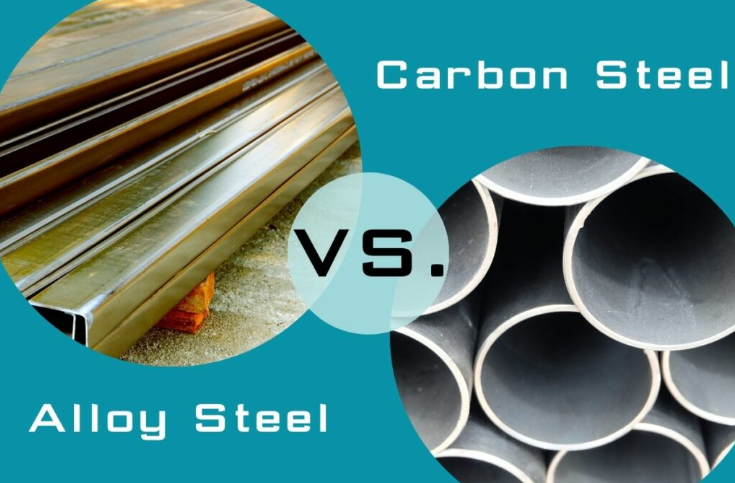Structural vs. Pressure Vessel Steel Plates: What’s the Difference?
1116Understand the technical and regulatory differences between structural and pressure vessel steel plates. Compare grades, properties, and applications in one guide.
View detailsSearch the whole station
When choosing the right steel material for your project, two terms frequently arise: carbon steel and alloy steel. While they may appear similar at a glance, the differences in composition, properties, and applications are significant. This guide explains their distinctions and helps you determine the best choice for your application.
Carbon steel is primarily composed of iron and carbon, with small amounts of other elements. It is classified based on carbon content:

Alloy steel includes additional alloying elements such as chromium, nickel, molybdenum, vanadium, or manganese to improve strength, corrosion resistance, and heat tolerance.
There are two types:

| Property | Carbon Steel | Alloy Steel |
|---|---|---|
| Composition | Iron + Carbon | Iron + Carbon + Alloying Elements |
| Strength | Moderate (in low C grades) | Higher (especially with Cr, Mo, Ni) |
| Corrosion Resistance | Lower | Higher (especially stainless types) |
| Cost | Lower | Higher |
| Weldability | Good (especially low C) | Depends on alloy content |
| Applications | Structural, pipes, pressure tanks | Aerospace, offshore, high-stress machinery |
The right choice depends on your application requirements:
| If You Need… | Choose… |
|---|---|
| Cost-effective material for general use | Carbon Steel |
| High strength and toughness | Alloy Steel |
| Better performance in corrosive environments | Alloy Steel |
| Easy forming and welding | Low Carbon Steel |
| Structural components with moderate stress | Carbon Steel |
1. Is carbon steel cheaper than alloy steel?
Yes. Carbon steel typically has a simpler composition, making it more affordable and easier to manufacture.
2. Can alloy steel be welded?
Yes, but some high-alloy steels may require preheating or special welding techniques.
3. Which steel is better for pressure vessels?
Carbon steel like ASTM A516 is commonly used, but alloy grades such as 15CrMoR are chosen for high-temperature environments.
4. Does alloy steel rust?
It depends on the alloying content. Some high-alloy steels (e.g. stainless) resist rust well, while others may still corrode.
Whether you’re sourcing affordable carbon steel or high-performance alloy steel, CJM offers a wide range of grades and fast global delivery.
WhatsApp: +86 181 9190 6640
Email: info@cjmstainlesssteel.com
Understand the technical and regulatory differences between structural and pressure vessel steel plates. Compare grades, properties, and applications in one guide.
View detailsLearn the differences between A36, A283, A572, A516 steel plates and more. Find the best structural and boiler steel plate grade for your project. Expert guide by CJM.
View detailsComplete Q355 steel equivalent guide covering EN S355, ASTM A572 Gr.50, chemical composition, mechanical properties, and grade selection (B/C/D/E).
View detailsExplore Incoloy 800, 800H, and 800HT coils in detail—chemical composition, mechanical properties, and industrial applications. Help you to choose wise.
View details
HelloPlease log in